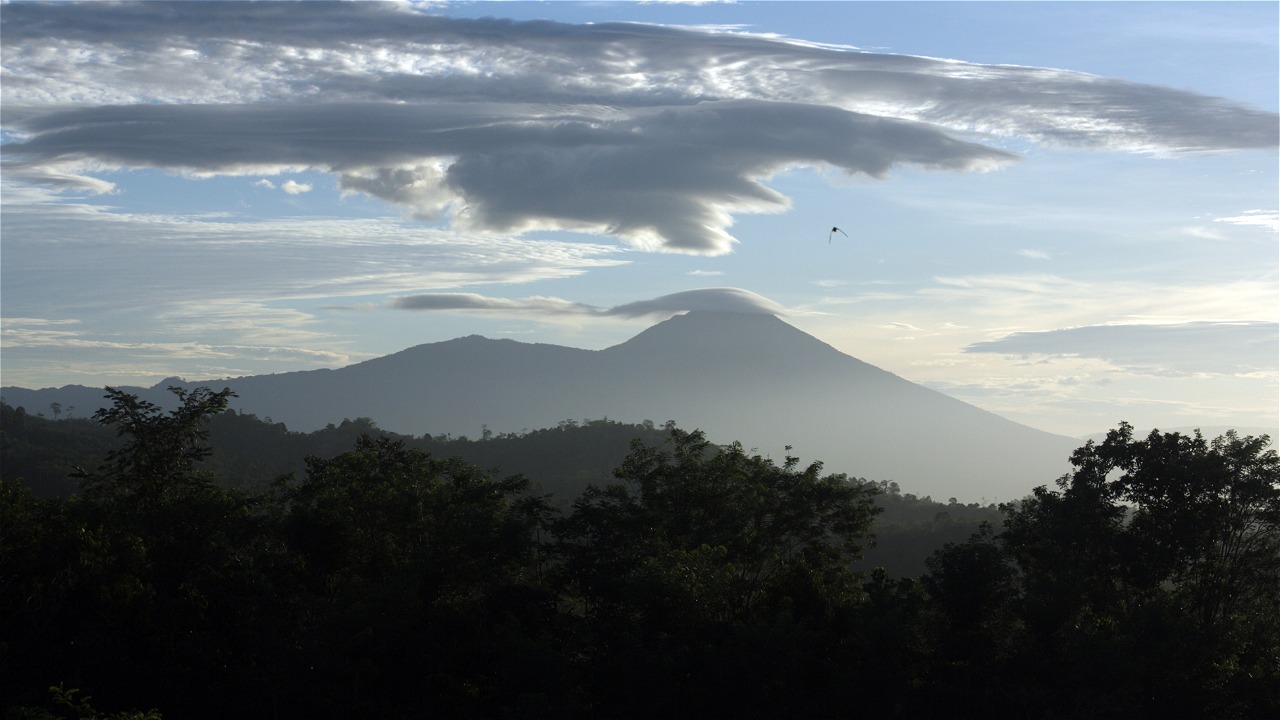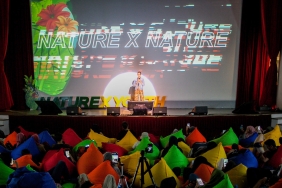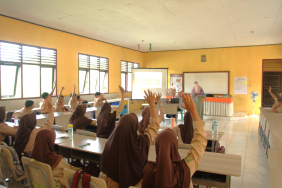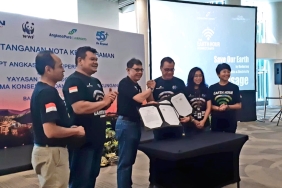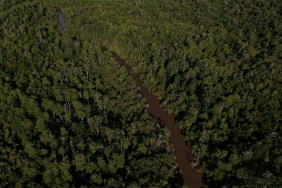LOCAL SUSTAINABLE DEVELOPMENT EDUCATION FACILITATOR TRAINING: LEARNING, PRACTICING FOR THE FUTURE
By: Saipul Siagian & Sani Firmansyah
Sustainable Development Education (SDE) is a dynamic concept that provides a new direction and vision in the world of environmental education. ESD encompasses a new vision of education that aims to empower people of all ages to assume responsibility for creating and enjoying a sustainable future.
The role of ESD facilitators is crucial in delivering various messages about the environment. Therefore, the Environmental Education Network (Jaringan Pendidikan Lingkungan or JPL), a network of NGOs or individuals engaged in promoting the quality of environmental education, organizes Local Training (Pelatihan dan Lokayarya) activities to catch up in socializing the concepts and practices of ESD implementation in Indonesia. This local training activity is supported by WWF-Indonesia, Sekolah Alam Digital, and Klub Indonesia Hijau.
The activity that took place on September 25-27, 2016 at Hotel 88 Surabaya was attended by 35 facilitators consisting of community facilitators, environmental education activists, and members of the Environmental Education Network (JPL). "The overall goal of Education for Sustainable Development is to empower citizens to act in a positive environment and social change, meaning participatory and action-oriented approaches," said Ninil from Klub Indonesia Hijau as a Facilitator of the Environmental Education Network (JPL) in one of the sessions.
In the local training activity, the participants received a lot of material about the principles of sustainable development. The 'Kompas' method was introduced as a tool in the Education for Sustainable Development method. Sustainability that we have known so far is the intersection of Social aspects, Economic aspects, and Environmental aspects, is now added to the factor, namely Fun / Happiness. The method is like a Compass that has four winds.
"The Compass Theory introduced to the world of Education for Sustainable Development is intended to make it easier for us to know the purpose of Education for Sustainable Development itself. Of course, it can be understood that in meeting the needs to support current life without sacrificing the environment that should be enjoyed by future generations, so it is felt that the community, in particular, understands these three aspects first," said Eko Paripurno, a facilitator from KAPPALA as a facilitator of the Environmental Education Network (JPL).
Taking place in a relaxed yet serious atmosphere, all participants were able to focus and enjoy every material presented. The hope is that each facilitator can begin to recognize environmental issues that develop in their respective areas, and then educate school-age and communities. Later, this can encourage and advocate for local stakeholders so that the goals of Sustainable Development Education can be achieved together so that the impact of change can be felt globally.

